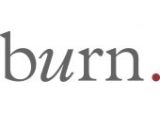Michalis Poulas
Infinite Perimeter
The place where one draws breath and calls one’s home; ’tis whence one begins; The place one recalls and reminisces, be it in a positive or negative light, years down the line, even if one never left it, either physically or mentally; It exists as place, as time, as a past experience in one’s memory and imagination; ’tis the remains of this theme that jointly shape the way one feels; The spacetime one calls one’s home is under tremendous pressure, and the issue is with whom, why, and to what extent one is willing to share it.
Infinite Perimeter is a project about human identity as it exists within the current stage of capitalism. It is about the feelings of loss, loneliness and isolation that everyone can experience whether as actual immigrants or even into their homeland. It is about the sense of being exiled even from ourselves.
Bio
Michalis was born in Athens Greece in 1978. His father, a professional sailor, opened a one hour process film shop back in 1988 in Crete island as he tried to stay close to his family and that was his first contact with photography. Poulas studied at Leica Academy in Athens. Since 2003 he established and has been running his own photo-lab in Sitia, Crete where he lives. Photography was one of his strongest weapons against his drug addiction and he would make pictures in order to ease the pain and fear of death.





















“[H]uman identity as it exists within the current stage of capitalism.” Quite the topic! The premise is reasonable: capitalism can involve feelings of loneliness indeed (as can other socioeconomic/political systems). And, I think the essay succeeds in conveying that sentiment. But, at the same time, while the images do seem to suggest loneliness or isolation, I’m not sure I’m convinced it’s because of capitalism. The bio makes me think the project takes place in Crete, but I sense a disconnect between the loneliness/isolation and capitalism/Crete. The essay can certainly stand, however, as a depiction of the photographer’s (or a metaphor for almost anyone) journey of self-discovery or quest for identity. Again, the capitalism part is where I’m a bit unclear.
Also, I feel like there’s a lot of work coming out these days about identity/”home”/heritage. Any thoughts? Could be b/c it’s accessible to each photographer–you photograph your home city/country or some topic about “home.” A narrative that’s totally doable for many, and that’s a good thing! At least a good place to start.
Cheers to Mr. Poulas.
Unfortunately the photographic narrative sits in the same field as fake news
The pictures were taken on the island of Crete, between May 2014 and May 2017.
The dominant role in this sequence of images is played by the surrounding sea,
which defines the limits of how much man can change the landscape.
The protagonists of the story are my friends and family members,
as well as people I approached along the way.
The images are not a strict document; rather then depict a place
that is defined by explicit morphological characteristics,
though it remains conceptually and geographically boundless.
I agree that loneliness and isolation can be found in other political systems but
capitalism,the last 10-15 years as a system works for less people and suggests that not having
access in education,health care,proper food,safety,is not a problem.
Therefore man and it’s basic needs have to find its way back to the center of attention
Interesting enough but if I saw these in a gallery I know I would spend more time looking at the mounting than at the pictures.
The pictures were taken on the island of Crete, between May 2014 and May 2017.
The dominant role in this sequence of images is played by the surrounding sea,
which defines the limits of how much man can change the landscape.
The protagonists of the story are my friends and family members,
as well as people I approached along the way.
The images are not a strict document; rather then depict a place
that is defined by explicit morphological characteristics,
though it remains conceptually and geographically boundless.
I agree that loneliness and isolation can be found in other political systems but
capitalism,the last 10-15 years as a system works for less people and suggests that not having
access in education,health care,proper food,safety,is not a problem.
Therefore man and it’s basic needs have to find its way back to the center of attention